Interview made by Jesper F. Andersen, editor KarateNews in Denmark
For coverage of the European Championships in karate U21, held in Novi Sad in Serbia in the period 11th – 13 February 2011, I had the great pleasure to get an interview with world champion in the senior kata, Antonio Diaz from Venezuela.
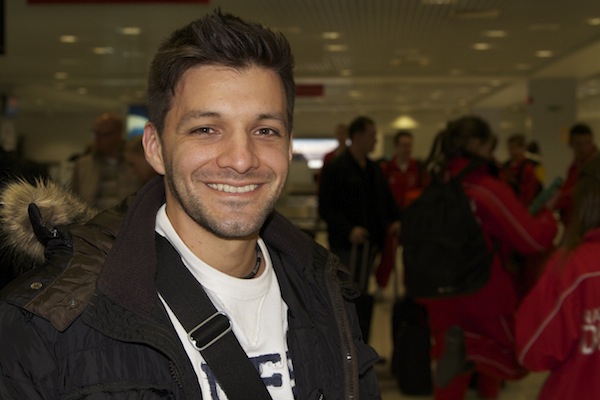 Antonio Diaz travelled with the Danish national team from Copenhagen.
Antonio Diaz travelled with the Danish national team from Copenhagen.
Antonio Diaz was during this year’s European Championships U21 coach for Christopher Rohde Skotte, thus following Christopher throughout the tournament. Antonio Diaz also serves as a personal trainer for Christopher and they meet several times a year. During the tournament, I have learned to know Antonio.
It’s been a great experience to meet a world champion who is humble, smiling, polite and to the extent a worthy representative of karate. His presence at the European Championship has attracted great attention when he was immediately recognized by youngsters who have him as the big idol. Antonio accepted sympathetically anyone who wanted a photo or autographs and answered to any questions that might come.
Antonio has strong traditional roots, which helps to make him much more than a world champion. He lives and breathes for karate and has a great knowledge in kata and bunkai. Antonio Diaz is 30 years old from Venezuela, where he lives in the capital Caracas.
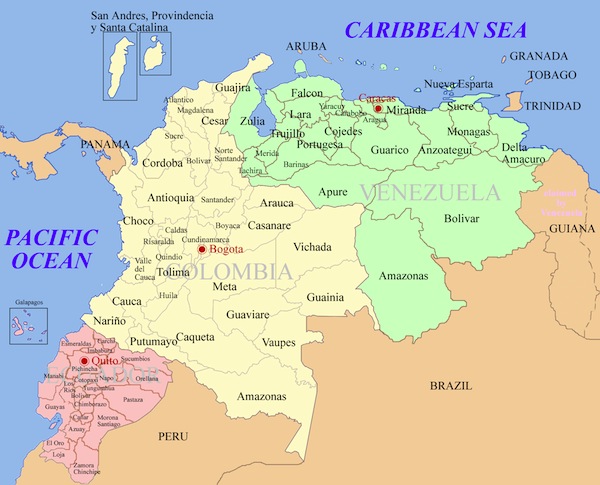 Venezuela is composed of several states and Caracas is the capital
Venezuela is composed of several states and Caracas is the capital
Antonio has until now had an impressive career. Here are the results he has achieved so far:
Results.
World Champion
World Games Champion
11 Times National Champion
8 Times Panamerican Champion
5 Times Central American and Caribean Champion
3 Times Southamerican Champion
4 Times Paris Open Champion
4 Times US Open Champion
2 Times Duth Open Champion
2 Times Italian Open Champion
2 Times Austrian Open Champion
3rd Place VIII World Games – Kaohsiung, Taiwan 2009
1st Place VII World Games – Duisburg, Germany 2005
3rd Place VI World Games – Akita, Japan 2001
1st Place XX WKF World Championship – Belgrado, Serbia 2010
2nd Palce XIX WKF World Championship – Tokyo, Japan 2008
3rd Place XVIII WKF World Championship – Tampere, Finland 2006
3rd Place XVII WKF World Championship – Monterrey, Mexico 2004
3rd Place XVI WKF World Championship – Madrid, Spain 2002
1st Place V FISU World University Karate Championship – New York, USA 2006
1st Place IV FISU World University Karate Championship – Belgrade, Serbia 2004
2nd Palce XIII Panamerican Games – Winnipeg, Canada 1999
1st Place XIV Panamerican Games – Santo Domingo, Dominican Republic 2003
1st Place XVIII Central American and Caribbean Games – Maracaibo, Venezuela 1998
1st Place XIX Central American and Caribbean Games – San Salvador, El Salvador 2002
1st Place XX Central American and Caribbean Games – Cartagena, Colombia 2006
1st Place XXI Central American and Caribbean Games – Mayagüez, Pto. Rico 2010
1st Place VI South American Games – Cuenca, Ecuador 1998
1st Place V South American Games – São Paulo, Brasil 2002
1st Place VIII South American Games – Buenos Aires, Argentina 2006
1st Place XIV Bolivarian Games – Ambato, Ecuador 2001
1st Place XV Bolivarian Games – Armenia/Pereira, Colombia 2005
World Cup 2010 in Serbia, World Champion in kata
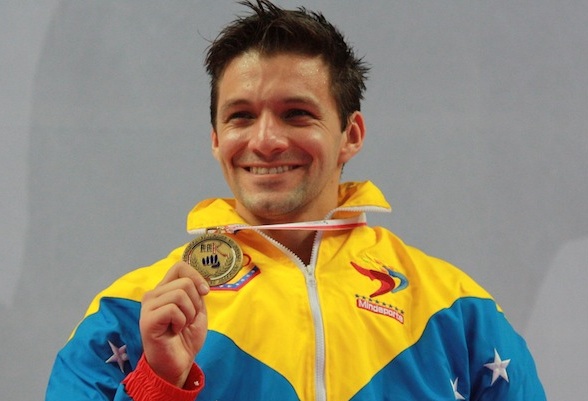 Antonio World Champion in Senior Kata, Serbia 2010
Antonio World Champion in Senior Kata, Serbia 2010
Background
When did you start karate?
I started karate as a 5 year old in 1986 with Sensei, Shoko Sato, in the style of Shito-Kai. In his dojo I met Sensei Javier Mantilla from Venuzuela who had responsibility for child training. For some years Sensei Shoko Sato left Venezuela, and Sensei Javier Mantilla opened his own dojo, in which I began to train. Here I gained a lot of my basic training, and Sensei Javier Mantilla introduced me to kata competitions. In 1996 I was admitted to the national team in Venezuela and I trained with Sensei Javier Mantilla until 2004.
How is the interest in karate in Venezuela?
Karate in Venezuela has always been popular and karate is today one of the most practiced sports in Venezuela. This is primarily Shito Ryu and Shotokan, being the major styles followed by Goju Ryu. The interest in karate in Venezuela is primarily due to the great sporting achievements which Venezuela has created. Venezuela has also a reigning world champion in kata for women, Yohana Sanchez. She overcame Hoang Ngan Nguyen from Vietnam, who unfortunately broke her leg shortly before the final. Venezuela has also had a world champion in kumite for men under 65 kg. in 2004. In all, Venezuela gained 3 gold, 3 silver and 5 bronze at World Cup
How is it to be world champion in Venezuela, can one make a living on it?
One gets little financial support for the ministry of sports, but not something you can make a living on. In addition, you get your trips to the World Championships and Pan American Championships paid by the karate federation, which counts approx. 5000 members.
Antonio is among others sponsored by Adidas.
I even get some sponsorship income from Adidas and from the cable company “DirecTV”.
What is your educational background and do you have a job alongside your training?
I have a university degree in social communication and have worked a little in the press department of sports institute for my state. Now I have no work other than kata training and seminars. Venezuela consists of different states and I teach 2 different states a couple of times a year. It requires a good structure to get it all to run around when you also have to train every day.
How much do you train and what consists your training of?
I train 6 times a week. Up to competitions I train 4-5 hours a day divided by 2.5 hours karate training and 2 hours of alternative physical exercise. I have attached a physical trainer, who is coach of the national team in Venezuela. He is planning my training, which is distributed with weight training, conditioning, explosive workouts and speed workouts. I get a program from him that I stick to
Are you training kumite?
When I was younger I trained both kumite and kata. I have also been national cadet champion in kumite. I still kumite coach, but is more cautious due to risk of injury. I also teach occasionally in kumite when I travel and teach in Venezuela. When I was graduated 4th dan 2 years ago I also had to show Kumite for graduation.
Who has been your biggest inspiration?
Among kata practitioners it must be Sakumoto from Japan and Milon from France. They were the biggest stars, when I started and I’ve always looked up to them. Among the instructors I now get great inspiration from my Japanese sensei, Tsugo Sakumoto, who I have trained under in Okinawa. It is the way Sensei Sakumoto’s interprets the karate and the way he teaches, which inspires me greatly. He can show and explain it in a special way. He is 64 years but still very strong and quick.
What is the difference between being taught karate in Japan Vs. Venezuela?
The big difference is that in Japan you are in direct relation to the roots where karate originated. By Kata the understanding of bunkai is better, as there is direct connection from the instructors and the founder of the various kata. There is a little mystery about it, too. Japan is a special country, which with discipline and structure makes it an interesting country. I’ve been to Japan 7 times divided with training and competition.
What is your relationship to traditional karate vs karate sport?
Many people tend to share in traditional karate and sport karate. I think it’s important that it is being united. Lots of traditional technique is used in competitions and I do not like when traditional practitioners talk badly on the competition section. Due to the competitions karate has spread around the world. I find the historical aspect of karate very interesting and exciting, and the sporting and traditional art with me in balance with each other.
What is your favorite kata?
I won the World Cup final in Serbia with Suparinpei. It is a kata, with which I feel most comfortable. Also the meaning of the kata – 108 movements, which have a special significance in Buddhism. Buddhists believe that man has 108 evil passions. So transferred one may say that in kata one fight against 108 evil passions, making the kata more authentic.
What is your greatest strength as a kata competitor?
Speed is one of my strengths. I am constant with my speed, and I also try to develop my own style. The European kata style is tough and athletic in nature on power. The Asian style is more “kind” and nice techniques. I try to take the best from both and go for a medium thing. The Japanese have great strength, the Europeans show it. I aim to be relaxed during the techniques and express strength at the right time. Yes, and so is the rhythm of course important.
How many competitions do you make a year?
Between 6 and 7.
Which country is the strongest in relation to kata?
Traditionally, Japan, Italy, France and Spain are strong nations. But countries such as Peru, Asia, Iran and Egypt are also well on their way.
Who is your biggest competitor?
Valdesi is my biggest competitor. We have met several times around the world. World Cup final in Serbia 2010 also stood between Valdesi and me. We have met 17 times in tournaments, mostly in the Finals. Valdesi have won 10 and I 7.
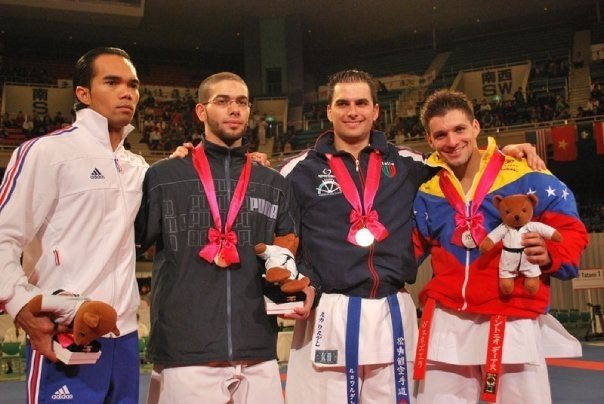 Antonio, silver at the WKF World Championship – Tokyo, Japan.
Antonio, silver at the WKF World Championship – Tokyo, Japan.
How is your relationship with him?
We feel good together and we talk to each other in connection with tournaments around the world. I remember I beat Valdesi in Italy Open and it is hard. What did you think of kata techniques changing shape and meaning in competitions, eg. is keage in Gankaku become kekomi? I think you can afford some changes without losing the essence. Sometimes we see changes that really change the kata. Typically it happens to make it look harder. But one must be careful not to lose the essence of kata.
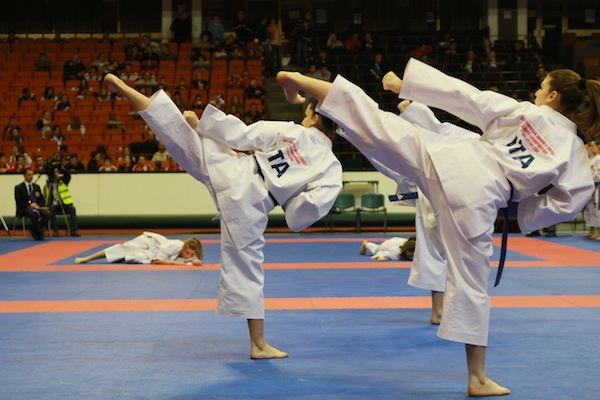 Team Kata from Italy during the U21 European Championships in Novi sad
Team Kata from Italy during the U21 European Championships in Novi sad
Are you training Shotokan kata?
Yes I train Shotokan kata, Empi, Kanku dai and Jion, but only as training and not in competition. Maybe I’ll show a Shotokan kata in a demonstration but not in a competition. I’ll be sure to show it properly. I have some friends who are sensei.s in Shotokan, and during seminars in Japan in 2001 I had the opportunity to learn kata from them.
How do you see developments in sport karate?
There is some experimenting with the rules going on. But I do think that we need time to adopt rules. About another 2-3 years we may see a further development of the rules. I want karate to become an Olympic discipline. It will give us more support from the sports institutes and it will open up greater opportunities for elite athletes in karate.
You’re world champion, what’s your next goal?
To regain the world championship next year in Paris. It has taken long to reach where I am now and I will show that I can regain it.
Do you give seminars?
Yes nationally, I give seminars, but now after I was world champion, it has opened doors to other continents. Many contact me to get me out. I would like to give several seminars in Europe. I would also like to spread the philosophy and promoting the technique in relation to the athletic within kata.
How do you see the European kata level?
There is a high level. Here at Euro U21 is the first time I’ve seen a live tournament. I have seen Europeans in the Paris Open and other tournaments and the great thing about Europe is the many tournaments, which is good to test themselves in a competitive atmosphere. The level grows, it is not the same countries who win. Now it is Turkey, Serbia, Slovakia and hopefully Denmark will also soon get medals.
You are private trainer for Christopher Rohde Skotte, how do you see developments in sport karate in Denmark?
I’ve also had the pleasure of traveling with the Danish national team for World Cup U21, which took place in Morocco in 2009 and since then I have seen a change. There is a stronger commitment and better cooperation on the team. I see the Danish team as a team that will grow stronger.
Can Denmark achieve medal in kata at a European Championship?
I hope so. It is important that as a country gets a name known outside the country.
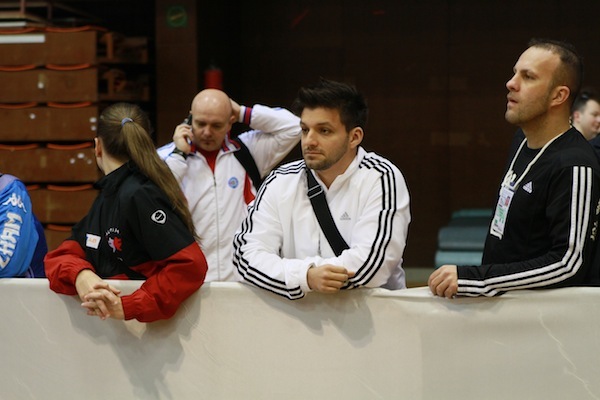 Antonios Dioz watching Christopher Rohde Skotte on the area.
Antonios Dioz watching Christopher Rohde Skotte on the area.
It’s a long process and for my part, I fought hard to become known outside Venezuela. Christopher Rohde Skotte is an example of kata getting a greater interest in Denmark.
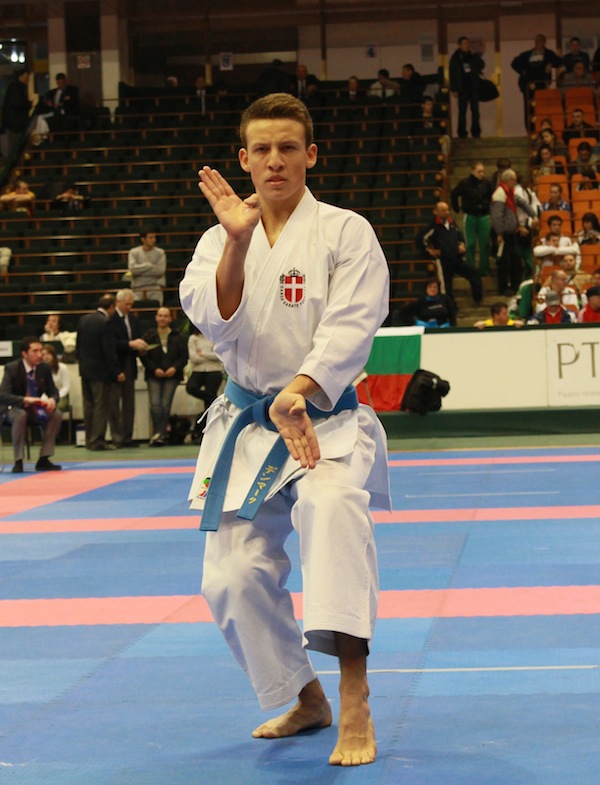 Christopher Rohde Skotte during the 38th EUROPEAN JUNIOR & CADET KARATE CHAMPIONSHIP
Christopher Rohde Skotte during the 38th EUROPEAN JUNIOR & CADET KARATE CHAMPIONSHIP
There is a tendency to believe that the Nordic athletes are too high to be able to cope within the kata, but now you can see by Christopher that kata is also an opportunity to come out on top there.
Do you have any good advice for young athletes in sports karate?
It is important to train with passion and dedication. And then you have to like practicing karate. Otherwise it will not be 100%. In addition, one should not only focus on medals or rankings, but remember to enjoy the training of karate and the way forward for the results. Otherwise there is a risk that you forget to focus on your training and the limited progress you do every time you train. That’s what helps to win and when your athletic career is over, it will make one a better karate exerciser and a better person in general.

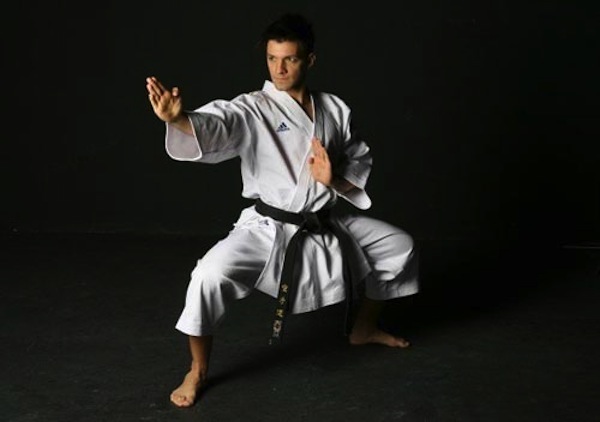
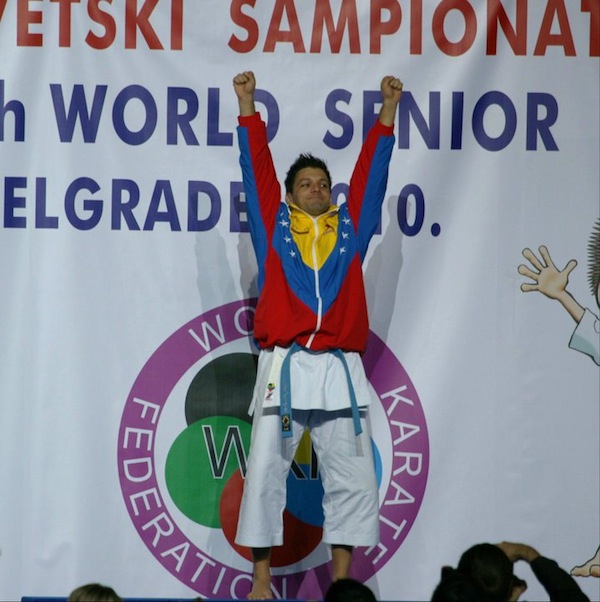
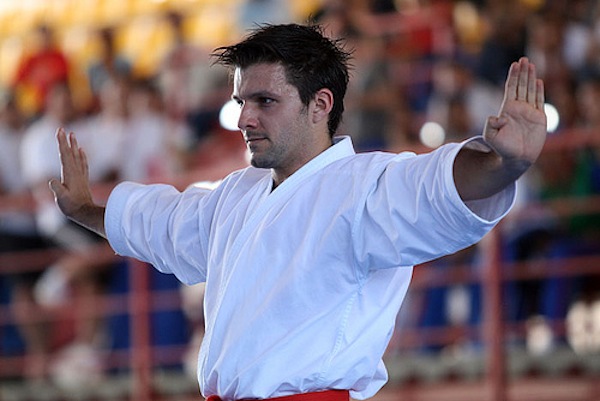

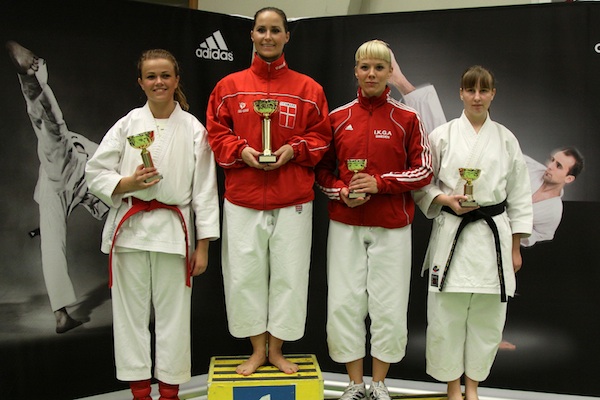
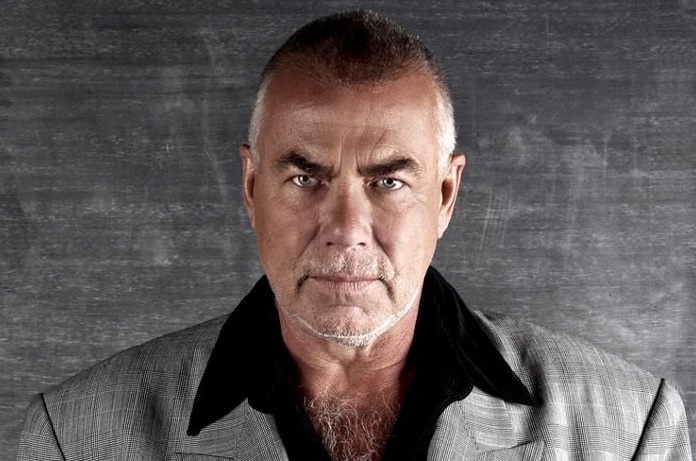
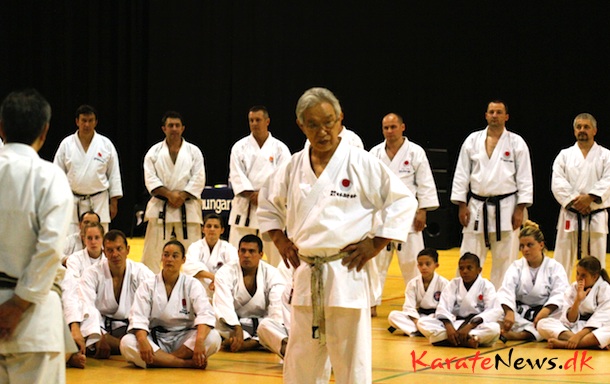




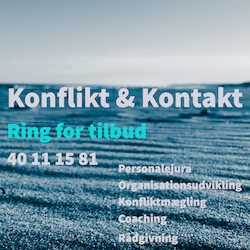
hello! i love you Antonio